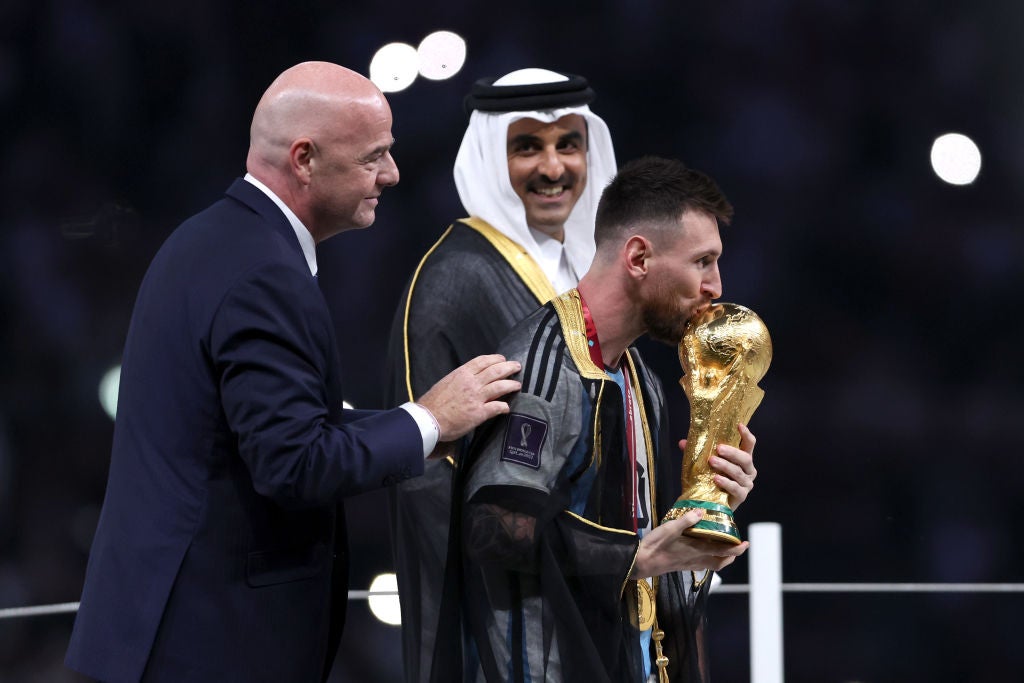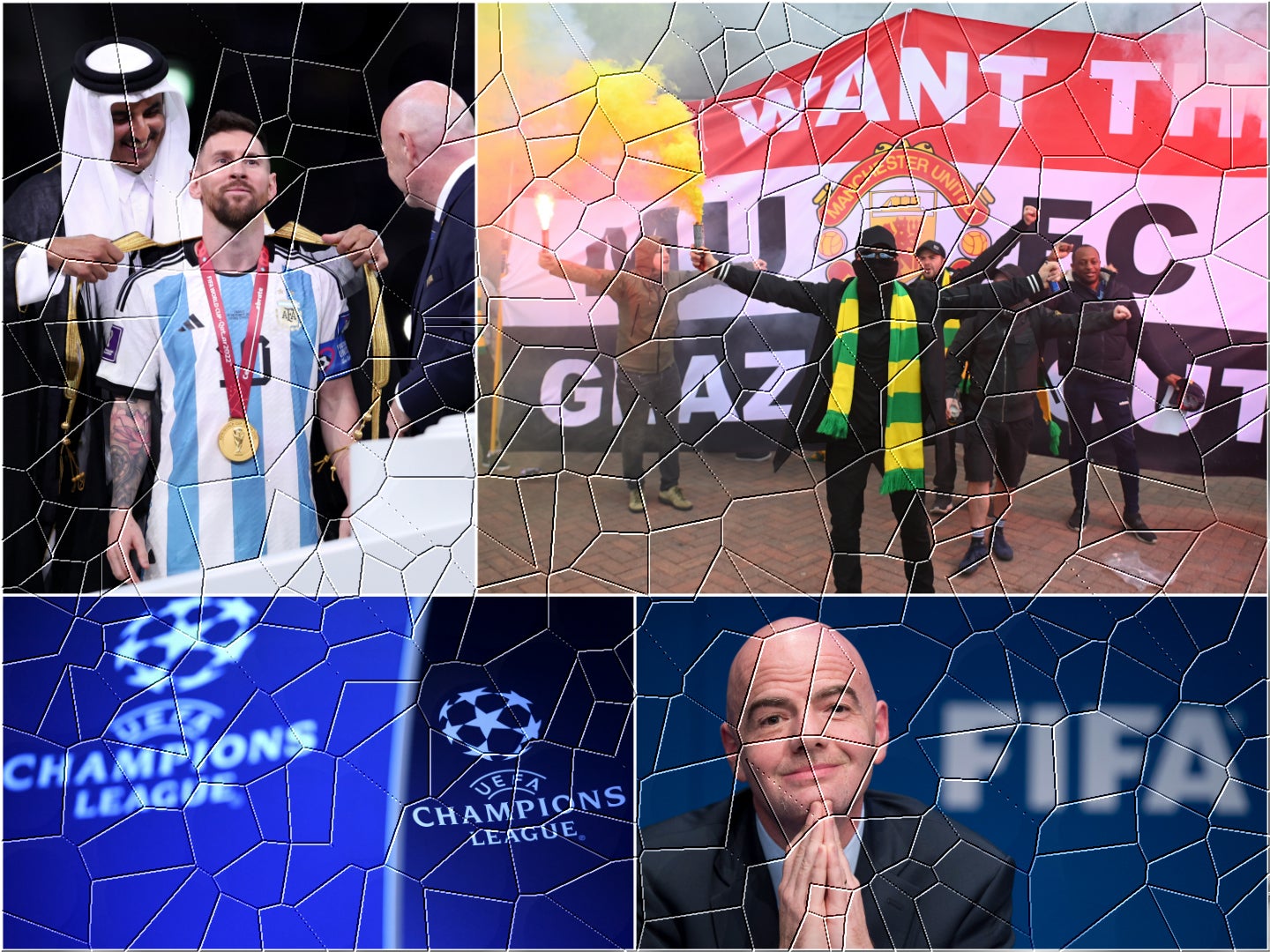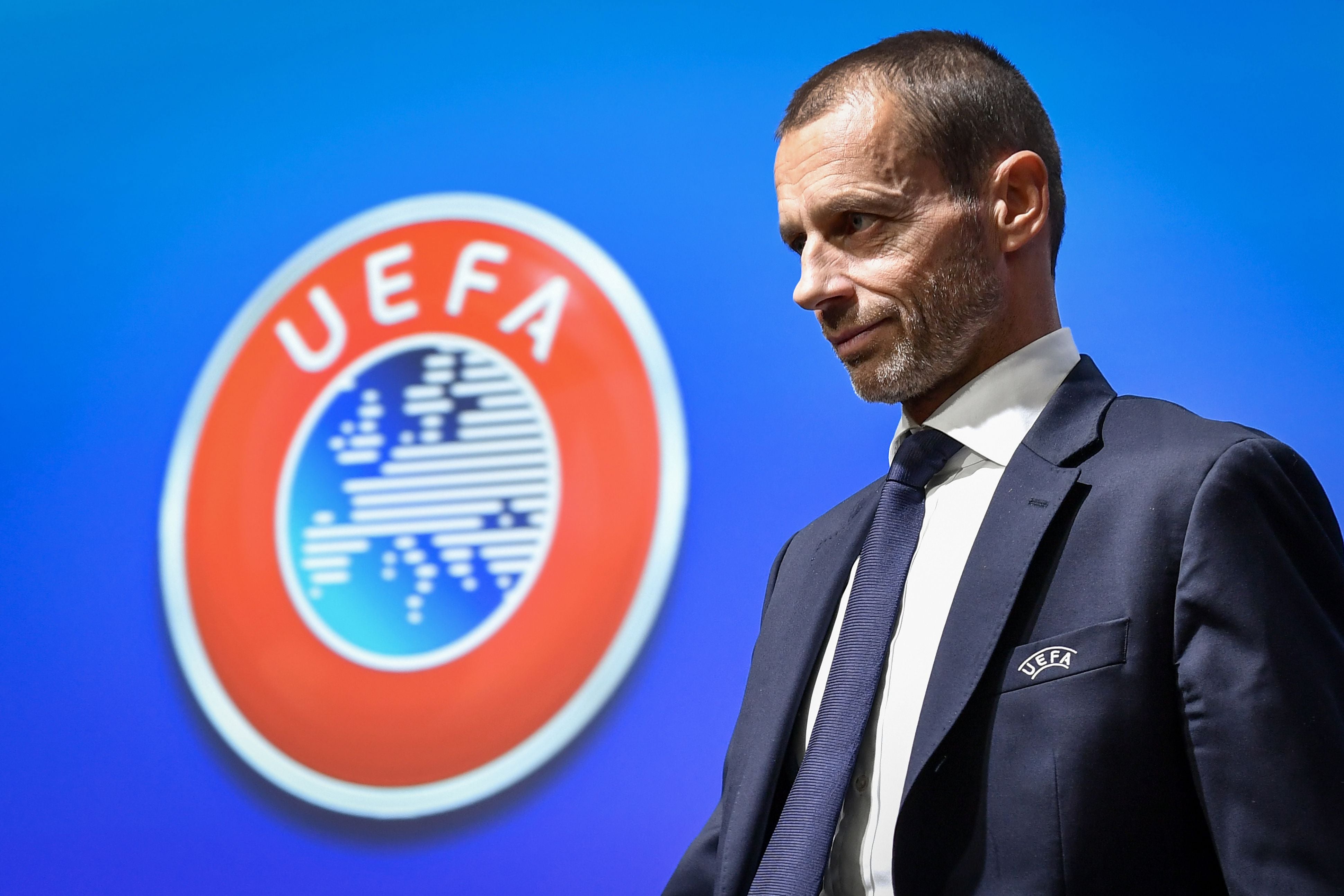Greed has brought football to the brink of implosion – now the entire structure could collapse
Manchester United’s potential takeover by Qatar could be the faultline that sparks a “Big Short” moment for the sport
Your support helps us to tell the story
From reproductive rights to climate change to Big Tech, The Independent is on the ground when the story is developing. Whether it's investigating the financials of Elon Musk's pro-Trump PAC or producing our latest documentary, 'The A Word', which shines a light on the American women fighting for reproductive rights, we know how important it is to parse out the facts from the messaging.
At such a critical moment in US history, we need reporters on the ground. Your donation allows us to keep sending journalists to speak to both sides of the story.
The Independent is trusted by Americans across the entire political spectrum. And unlike many other quality news outlets, we choose not to lock Americans out of our reporting and analysis with paywalls. We believe quality journalism should be available to everyone, paid for by those who can afford it.
Your support makes all the difference.In the early Nineties, a group of European football figures travelled to the US to garner some advice on how to grow the game, only to be given a warning by one of the American sports officials.
“If you think you’ve got problems now, wait until you start making money.”
It was counsel that has come to describe football in 2023.
The game’s giddy embrace of late-stage capitalism has made it an immense financial and cultural force. To the point, the major American sports are now said to be “petrified” of its growing US influence ahead of the 2026 World Cup. The build-up to that, and the sport’s final and full global takeover, might nevertheless bring a breaking point in football history. That is because – as with so much in late-stage capitalism – the opulent top end is better off than ever before but the rest has never been worse. The game has grown to a size where it is this gleaming cultural monolith but one filled with several structural faultlines.
Some of these have been revealed and widened by major stories of the last few weeks, only signalling how close we may be to something very significant.
It has led influential figures in the sport to wonder whether this build-up to 2026 will bring a “Big Short” moment, where the centre can no longer hold.
The primary problem, as predicted, is the financial size of football. Or, rather, where all that money goes.

A series of key decisions over decades – from the expansion of the Champions League to the evasion of Rule 34 in England – have seen the game rise to a height where it is an almost unscalable ladder. A number of tiers are now built in, which fatally stretch resources if you want to rise up, and have also killed competitiveness in so many competitions and leagues. A series of studies show that football has never been so predictable at club level. You only have to look at how Bayern Munich dominate Germany or Paris Saint-Germain dominate France.
The other side to this is that it increases global interest in this narrow band of clubs, at the expense of everything else, in a self-perpetuating cycle.
These problems have been significantly widened by the most extreme effect of this, and what arguably represents the greatest existential threat to the game. That is the interest of autocratic states, who have seen the immense social and political power of football that stems from its global financial size. So much is articulated in Qatar’s attempt to buy Manchester United, which is a moment of enormous consequence for the game.
While the main concern with this should be how the identities of these great institutions are politically used for issues as grave as sportswashing human rights abuses, the most visible effect is that on the sport itself. It stretches this ladder to even higher levels. This was one of the main calculations by PSG in buying Neymar, since they knew the inflation of prices and wages would mean only a few clubs could compete, and many others would bankrupt themselves trying. It is exactly what has happened.
The human rights group Fair Square last week forensically articulated a core flaw in the government’s white paper that is attempting to regulate football governance, pointing out in a letter how the document’s failure to even mention addressing state-owned or influenced clubs means the outlined goal of “systemic stability” “simply isn’t possible”.
Many in football and politics point out how such omissions are an intention of the Conservative government, given how open they were to Saudi Arabia buying Newcastle United and now Qatar owning Manchester United. That political value has forced just one more crack in the monolith.

The wreckage left behind by all of this has meanwhile led to other concerning interests seeking to exploit the game, principally in the form of private equity funds.
Aside from the fact the source of such funds can be so opaque, and lead to greater questions, many figures caution how “the interests of such funds are totally at odds with what sport is supposed to be about”.
They have started to gain controlling portions of competitions and major clubs. That is a direct consequence of the financial stress on so many football institutions, especially under the weight of the true globally popular events like the Premier League. Empty husks dominate football’s landscape. Many have been forced into desperate measures to survive.
Most troublingly – and in a development that led directly to the white paper – a number of core community clubs are now under threat, but that poison ivy has started to crawl up the game. You only have to look at Barcelona’s current financial structure and how they are propped up. They are one of a series of major clubs that look like they are almost primed to topple over, all because they are forever striving for the finance at the top of the game.
An almost tragic irony is that much of this comes from the self-defeating greed of such clubs, as well as the total failure of governing bodies to handle them. Consider two twists of history. In 1992, Rangers were one of the main influences driving the new Champions League, which only came about because of the threat of a super league. The Ibrox club have now become one of its main victims, their TV market just too small to compete in a world inflated by such money.
On a grander scale, so much of the current football landscape was driven by Barcelona and Real Madrid. They then found they didn’t like what that landscape looked like, so sought to set up the first ill-fated European Super League.
Its defeat was seen as a victory for the spirit of the game, but may have just been a minor battle in a much larger war.
While the Super League stood as a landmark to so much of the financial self-interest that has been so ruinous for football, it should be acknowledged that one of its motivations was rooted in fair rationale.
That is that the governing bodies are not fit for purpose if they are both regulators and competitors, in the form of competition organisers. This has become a faultline growing the most, especially as the calendar begins to creak.
While the ideal of football should be that the clubs feed into the national associations who feed into the continental federations and finally Fifa, most of these various interests want their own portion of football’s wealth.
So, Uefa has the Champions League, which has primarily ensured most of the game’s wealth is the preserve of a few corners of western Europe. This had made half of the competition predictable and boring – at least until, typically, the glamorous top end – but the solution has not been to address this core flaw. It has instead been to add more games. This is seemingly the solution to everything, because no one ever wants to give anything up.

By the same token, Fifa has seen the economic success of the Champions League and how that has become the main international focus of the sport – and they want their cut of it. Hence a newly expanded Club World Cup, that Gianni Infantino has already sought Saudi money to back.
It has all led to what is described by one source as a “war” between Fifa and Uefa as so much of the game falls down around them. It is another tragic element. A sport that has mostly thrived around the world because of its spirit of community and how easy it is for anyone to play is now in a situation where so many incentives are misaligned. There are so few figures of influence actually looking out for what is better for the wider health of the sport.
Duly, the game may soon start to face a few crises of legitimacy. In Spain, the Super League alliance has already started to falter, as Real Madrid have now joined the case against Barca over charges regarding payments to former referee José María Enriquez Negreira. Project partners Juventus are meanwhile appealing a 15-point deduction for false accounting, as they also face related sporting and criminal investigations. The Premier League’s most dominant club in Abu Dhabi’s Manchester City have meanwhile been charged for over 100 alleged breaches of Financial Fair Play rules, that amount to accusations of fraud.
The outcomes of these cases could have immense ramifications for how the game looks and is seen.
All of this comes as interest in community clubs and other leagues significantly wanes. In France, as an example, most of the youth are now PSG fans. Sources on the ground in the US meanwhile talk of how they are trying to use the World Cup to increase interest in more localised football but find that most kids just want to watch the big clubs.
This is something the World Cup almost symbolised, just as it brought an era to a close. The last 40 minutes of the final may have been the most perfect period of football ever seen, enriched by the most intense drama and the most invigorating storyline, but it was all staged in the most imperfect host country and surrounded by real-world problems of the most serious type. Those hosts are now seeking to buy Manchester United, potentially heralding a new era, with even more serious issues.
This just sums up the wider game. If all of these faultlines are to come together to cause an implosion, it’s easy to see how it will go. It could be like the Big Short. The top end will mostly be clear of the damage, protected by so much wealth, while the rest of the sport faces the consequences. It could well see the split in the game that has long been anticipated, with a super-local level separated from an ultra-elite.
That level of football is making more money than ever before. The problems, however, may only be beginning.



Join our commenting forum
Join thought-provoking conversations, follow other Independent readers and see their replies
Comments